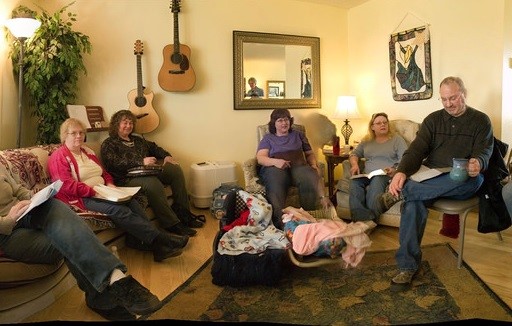 SEWICKLEY HEIGHTS, PA – Christians in Africa, the Middle East, and Asia have been struggling to keep churches open and maintain home Bible studies in the face of opposition. Not all of the opposition they face comes in the forms of physical abuse, assault, and terror attacks.
SEWICKLEY HEIGHTS, PA – Christians in Africa, the Middle East, and Asia have been struggling to keep churches open and maintain home Bible studies in the face of opposition. Not all of the opposition they face comes in the forms of physical abuse, assault, and terror attacks.
Much of the opposition is coming now in the form of legislation, including building and zoning codes and the enforcement thereof. It’s all done under the guise of protection, safety, and even anti-terrorism. Churches and home Bible studies in some countries are required to register so that their properties can be inspected and their activities monitored by government officials.
The case of a Bible study group in western Pennsylvania could become the precursor and seminal event of similar things to come in the United States
According to TruNews, “For decades and under previous ownership, the 35-acre property Scott and Terri Fetterolf own 15 miles west of Pittsburgh has been used to host not just Bible studies, but worship events, religious retreats, and church fundraisers. But last October, local officials told them that their property isn’t deemed a “place of worship,” so all religious activities there are now prohibited.”
The Pennsylvania couple is now taking legal action after the Borough of Sewickley Heights prohibited them from hosting a home Bible study, citing zoning restrictions on their property.
Following yet another in a long sequence of unsuccessful appearances before the Sewickley Height zoning commission and borough commission, the Fetterolfs, with the aid of the Independence Law Center, have filed a federal lawsuit in the U.S. District Court for the Western District of Pennsylvania against the borough seeking to reinstate their right to use the property for religious gatherings.
Although the 35-acre property has been used for decades by the Fetterolfs and the property’s previous owner for Bible studies and retreats, the lawsuit contends that “Sewickley Heights is threatening the Fetterolfs with fines of $500 per day, plus court costs including the Borough’s attorney’s fees, for having Bible studies at their home, having meetings where religious songs are sung, conducting any religious retreats for church leaders or seminary students for prayer or for camaraderie-building/fellowship time, and conducting any religious fundraisers”
The 23-page suit calls attention to the fact that “There is no compelling interest in prohibiting Bible studies, meetings where religious songs are sung, religious retreats/fellowship, and religious fundraisers, especially when secular counterparts of these activities are permitted.” (emphasis ours)
The Pittsburgh Post-Gazette quoted Jeremy Samek, senior counsel for the Pennsylvania Family Institute and the Independence Law Center saying, “Sewickley Heights Borough is engaging in an egregious form of religious discrimination.” He went on to say that, “In America, no government can categorically ban people from assembling to worship on one’s own property.”
Randal Wenger, the chief counsel for the Independence Law Center added that “The borough has no business overseeing a group of people reading and discussing a book together on private property—even if that book is the Bible,”
The lawsuit seeks a permanent injunction that against Sewickley Heights because their prohibition of the use of the land for Bible study, fellowship gatherings, and fundraising events violates the federal Religious Land Use Act and restricts the Fetterolf’s constitutional rights to freely exercise their rights of religion, speech, and assembly.
Sources:
- Pittsburgh Post-Gazette, Owners of Sewickley Heights farm appealing cease-and-desist order
- TruNews, Town Bans Home Bible Study
- PAFamily, Bible Study Banned: Family Ordered to Stop Hosting Religious Activities
- Sewickley Herald, Couple sues Sewickley Heights over order banning religious activities at farm
- The Christian Post, Christian Family Sues Over Order to Stop Hosting Bible Studies, Church Retreats on Property
Image Source:
- “Panaroma of our Sunday Group” by Larry Jacobsen, Flickr (CC BY 2.0)




